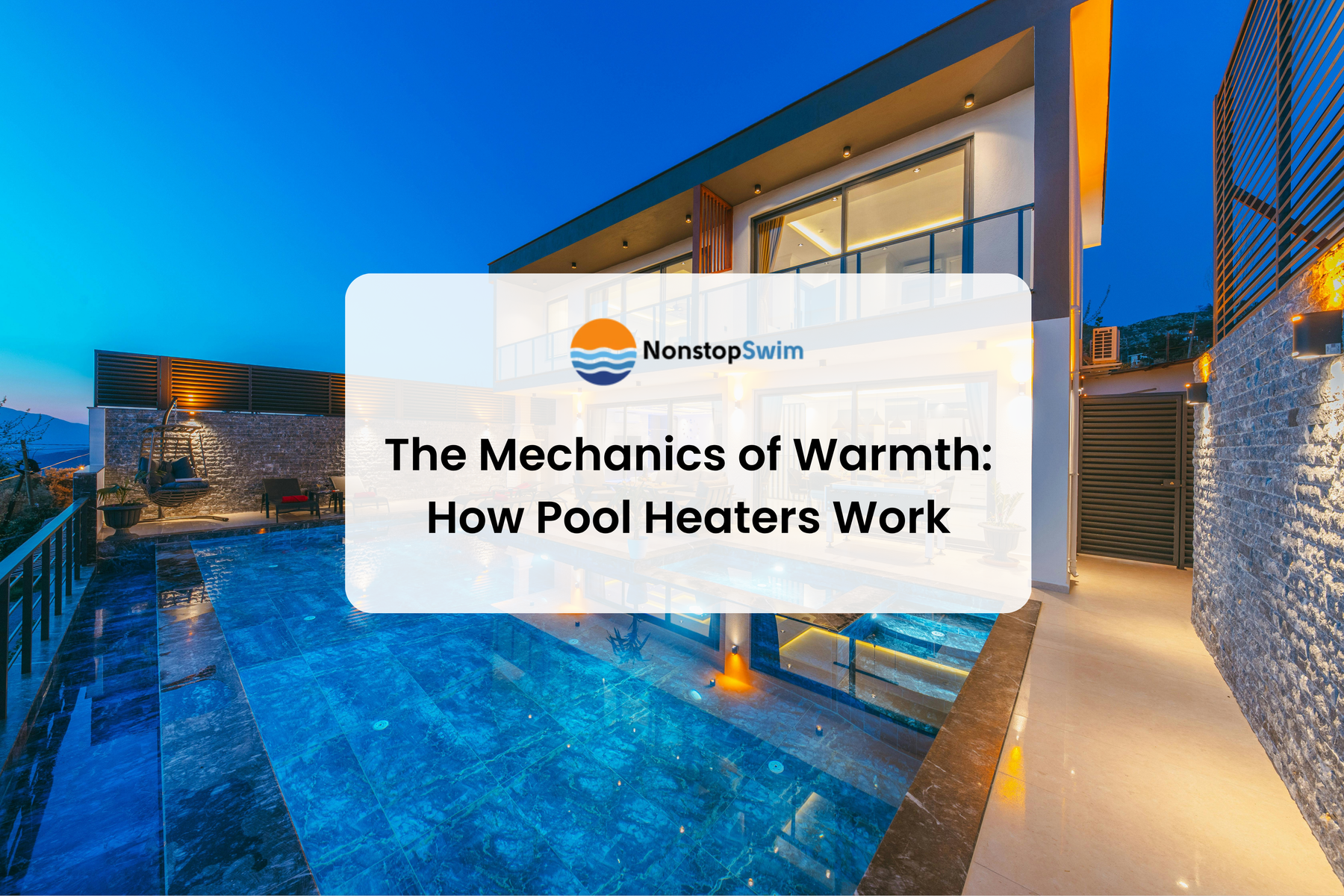
The Mechanics of Warmth: How Pool Heaters Work
Understanding Pool Heaters
Ever wonder how pool heaters turn your chilly backyard pond into a warm pool you actually want to get into?
Short answer: they transfer heat into the water using gas, electricity, or even sunshine.
It's science - but the kind that feels like magic on a cold morning.
Keep reading to find out what’s really happening behind the scenes every time your pool feels just right.
What is a Pool Heater and Why Use One?
A pool heater is a machine that helps keep your pool water warm, even when the air around it isn’t.
If you've ever dipped your toe into freezing pool water and changed your mind about swimming, you know why these things matter. Whether you're trying to stretch swim season into the fall or just enjoy an early morning dip without a shiver, a heater makes that happen.
People use them for all sorts of reasons: to swim year-round, to keep kids happy, or to get a little muscle relief after a workout. They're especially helpful for older swimmers or anyone with joint pain who benefits from warmer water.
How Different Types of Pool Heaters Work
Electric Heat Pump Pool Heaters
Electric heat pumps are all about pulling heat from the air and moving it into the water.
They don’t make heat from scratch - they borrow it from the air around your pool.
They take longer to warm things up compared to gas, but they make up for it in efficiency.
If you live somewhere that stays above 50°F most of the year, a heat pump is one of the smartest choices you can make.
The Heat Exchange Process
Here’s how it works: the heat pump pulls in outdoor air and uses refrigerant coils to grab the heat.
That heat is then passed through a heat exchanger and into your pool water.
It’s like an air conditioner in reverse. Instead of cooling, it’s warming.
And because it moves heat instead of creating it, it uses less energy.
Ideal Conditions for Heat Pumps
Heat pumps work best when the weather is mild to warm.
Places like Florida, California, or most of the southern U.S. are great for them.
If you try to use one in freezing weather, it’ll struggle and your electric bill will hate you.
But in the right climate? They’re quiet, efficient, and built to last.
Gas Pool Heaters
Gas heaters are the go-to choice if you want fast results.
They heat water quickly and don’t care much about the outside temperature.
They’re ideal for folks who only heat their pool occasionally or live in cooler areas.
Turn it on, and your pool can go from cold to comfortable in just a few hours.
Propane vs. Natural Gas
Both propane and natural gas models work the same way - they burn fuel to make heat.
The difference is in how the fuel gets to you.
Natural gas is usually piped in from a city supply. It’s cheaper, but only available in certain areas.
Propane comes in tanks, so it’s great if you’re off-grid or in a rural location.
Rapid Heating Explained
Let’s say your in-laws are visiting last-minute, and you want to impress them with a warm pool.
A gas heater can make that happen fast.
Unlike heat pumps, gas doesn’t rely on the air temperature. It just burns fuel and gets the job done.
Great for hot tubs, chilly nights, or whenever you don’t want to wait.
Solar Pool Heaters
Solar heaters are powered by the sun and cost very little to run once set up.
They’re great if you have a sunny roof or open space near your pool.
They’re also the most eco-friendly option out there.
Harnessing the Sun’s Energy
Solar panels, called collectors, are placed on your roof or a rack nearby.
Water is pumped through them, gets warmed by the sun, and flows back into your pool.
It’s simple but effective. And while it won’t heat as fast as gas, it’s free once installed.
Just make sure you’ve got a good amount of direct sunlight. Without that, it won’t do much.
Choosing the Right Pool Heater for Your Needs
So which one’s right for you?
That depends on your climate, your budget, and how often you swim.
If you’re in a warm place and plan to use the pool a lot, a heat pump is a great pick.
If you need fast heating or live in a colder climate, gas might be better.
If you want to save long-term and live somewhere sunny, go solar.
Also, think about pool size. A smaller pool needs less power to heat. A bigger one might need something more heavy-duty, like the FibroPool FH270 pool heat pump or the FibroPool FH285-i heater chiller.
Whichever type you choose, keeping your pool warm doesn't have to be a mystery.
Just pick the right heater for your setup, maintain it well, and enjoy the swim.




Leave a comment